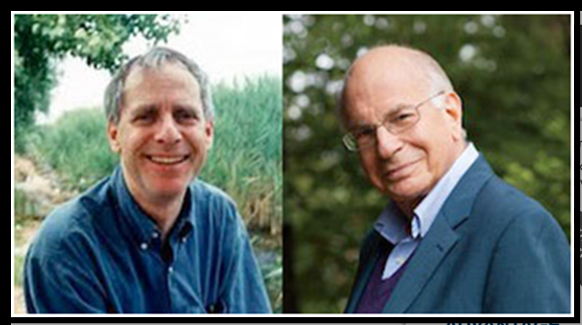WORDS BEHAVE WELL, GREAT PSYCHONOMIST
Syllabus:
- GS-2 – Development processes and the development industry —the role of NGOs, SHGs, various groups and associations, donors, charities, institutional and other stakeholders.
- Indian Economy and issues relating to planning, mobilization, of resources, growth, development and employment.
- GS-4– Ethics in human interface ,Human values , Emotional intelligence, good governance
Focus :
- Daniel Kahneman, along with Amos Tversky, revolutionized the field of decision-making and economics. Despite not having a formal economics background, Kahneman’s work earned him the Nobel Prize in Economics in 2002.
Source:- UN
Introduction
- Daniel Kahneman, alongside Amos Tversky, reshaped economics despite lacking formal training in the field.
- Their groundbreaking work earned Kahneman the Nobel Prize in Economics in 2002.
- Prospect Theory, their seminal contribution, revolutionized how we perceive risk and make decisions.
- Kahneman’s research unveiled the prevalence of biases in decision-making, challenging traditional economic assumptions.
- This article explores Kahneman’s legacy and his profound influence on various disciplines.
Prospect Theory: A Paradigm Shift
- Prospect Theory fundamentally altered how individuals evaluate and respond to risks.
- It explained why people often irrationally cling to losing investments while avoiding uncertain gains.
- The theory introduced the concept of “loss aversion,” shedding light on human behavior in economic contexts.
- Kahneman and Tversky’s research demonstrated the limitations of traditional economic models.
- Prospect Theory provided a new framework for understanding decision-making under uncertainty.
Biases in Decision Making: Unveiling Human Quirks
- Kahneman’s studies revealed the pervasive influence of biases on decision-making processes.
- People exhibit a preference for certain outcomes over probabilistic ones, even when the expected value favors uncertainty.
- Cognitive biases, such as anchoring and availability heuristic, shape our perceptions and judgments.
- These biases lead to systematic errors in decision-making, impacting individual choices and market behavior.
- Understanding these biases is crucial for designing effective policies and interventions.
Thinking, Fast and Slow: The Dual Systems
- “Thinking, Fast and Slow” introduced the distinction between two cognitive systems: System 1 and System 2.
- System 1 operates automatically and intuitively, while System 2 involves deliberate, analytical thinking.
- Kahneman illustrated how these systems interact in shaping our judgments and decisions.
- The book elucidated common cognitive illusions and errors arising from the interplay between these systems.
- Recognizing the roles of System 1 and System 2 enhances our understanding of human cognition and behavior.
Legacy and Influence: Beyond Economics
- Kahneman’s work laid the foundation for behavioral economics, bridging psychology and economics.
- His insights have permeated diverse fields, including medicine, public policy, and marketing.
- Kahneman’s research informed the development of evidence-based practices and interventions.
- He remains a leading figure in the study of decision-making and cognitive psychology.
- Kahneman’s legacy continues to inspire scholars and practitioners, shaping our understanding of human behavior and decision-making processes.
Source:The Economic Times
Mains Practice Question :
GS-2
Discuss the role of behavioral economics in shaping public policy decisions. How can insights from behavioral economics be effectively integrated into governance mechanisms to promote better outcomes? (15 marks)
GS 3:
Climate change poses a significant threat to global security and economic stability. Discuss the role of international cooperation in mitigating the impacts of climate change on vulnerable regions and promoting sustainable development. How can developing countries leverage technological innovations to address climate-related challenges? (15 marks)




